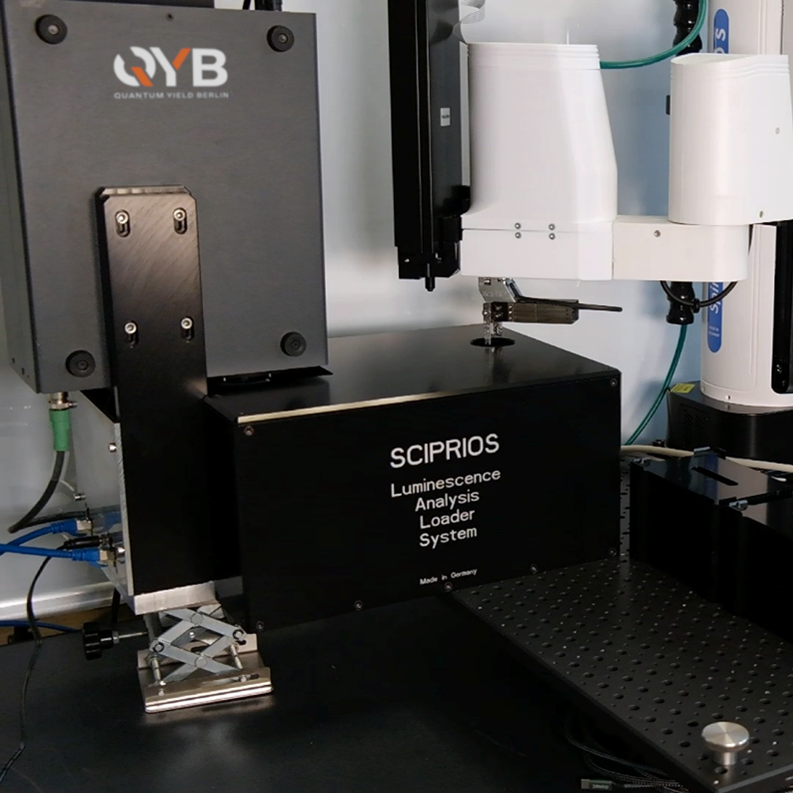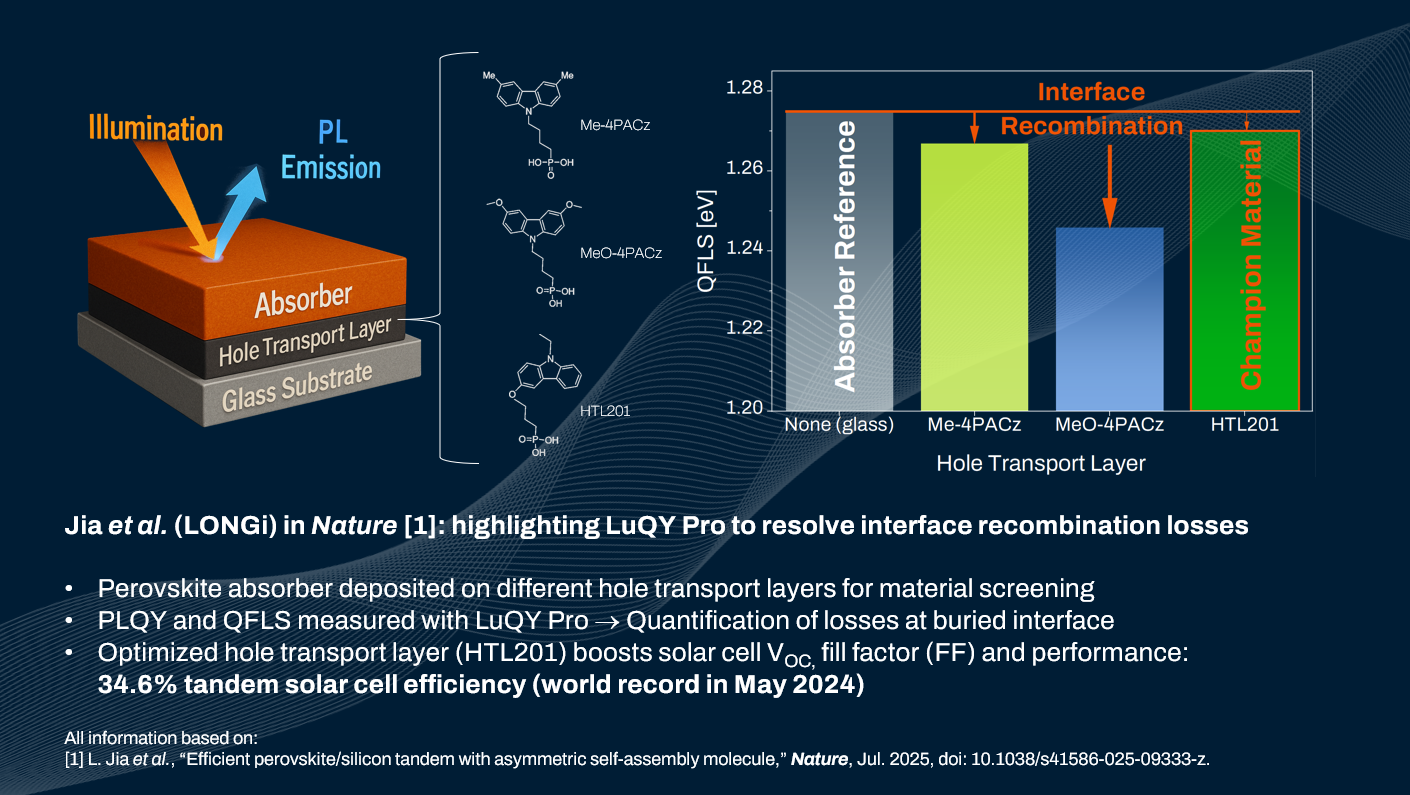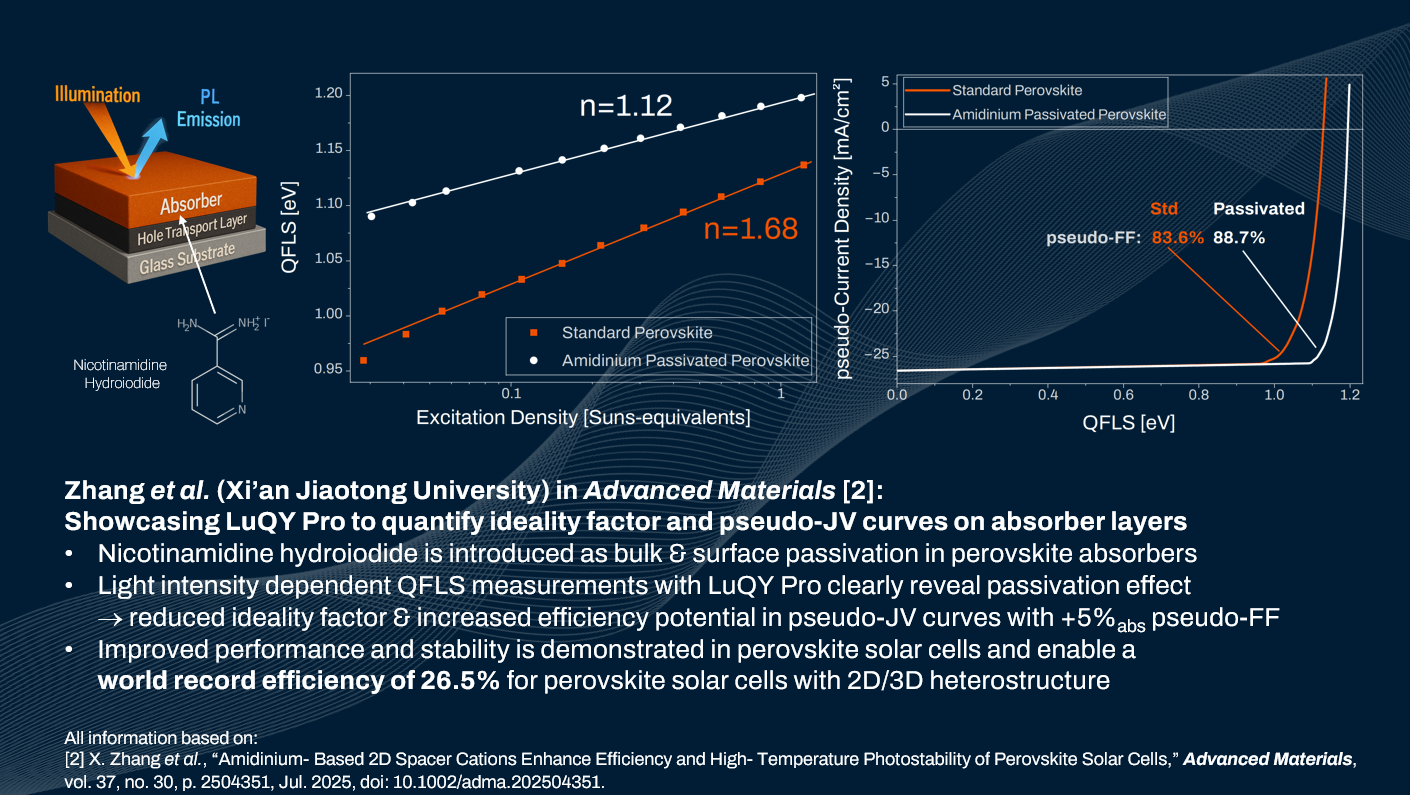References
Science-based expertise, trusted by leading research groups.
QYB – Quantum Yield Berlin GmbH is a spin-off from Helmholtz-Zentrum Berlin with strong academic roots. Our methods have been validated in peer-reviewed publications and widely adopted by the photovoltaics community. Today, LuQY Pro systems support both cutting-edge research and industrial development of high-efficiency solar cells.
LuQY Pro stands on proven methods, established through our peer-reviewed research.
References marked with ‡ indicate publications with contributions from members of our team.
Resolving bulk and interface recombination losses from PLQY and absolute PL:
[1]‡ Unold et al., Advanced Characterization Techniques for Thin Film Solar Cells, Chapter 7: Photoluminescence Analysis of Thin-Film Solar Cells, Wiley, 2011, ISBN: 9783527410033
[2]‡ Al-Ashouri et al., Energy Environ. Sci., 2019, 12, 3356-3369
[3]‡ Kegelmann et al., ACS Appl. Mater. Interfaces, 2019, 11, 9, 9172-9181
[4]‡ Stolterfoht et al., Energy Environ. Sci., 2019, 12, 2778-2788
[5]‡ Liu et al., ACS Energy Lett., 2019, 4, 1, 110-117
[6]‡ Kirchartz et al., Adv. Energy Mater., 2020, Early View 1904134.
Ideality factor and pseudo-JV curves from light-intensity dependent absolute PL:
[7]‡ Caprioglio et al., Adv. Energy Mater., 2019, 9, 33, 110-117
[8]‡ Stolterfoht et al., Adv. Mater., 2020, DOI: 10.1002/adma.202000080
[9] Chris Dreessen et al., Journal of Luminescence, 2020, 222, 117106
Success Story: QYB x SCIPRIOS
Quantum Yield Berlin is collaborating with SCIPRIOS to integrate the LuQY Pro’s advanced luminescence analysis in SCIPRIOS’ robotic semiconductor fabrication platforms. This combination allows fully automated thin-film fabrication and analysis which massively accelerates the development of advanced optoelectronic devices.
As a result, researchers and industry partners can optimize solar cells and LEDs faster and more reliably, reducing development cycles and opening new opportunities in printed electronics and photovoltaics. The collaboration was fostered by the Solar Tap technology acceleration platform and is covered in more detail in a recent success story.

Stay Connected
Follow our latest news and updates on:



